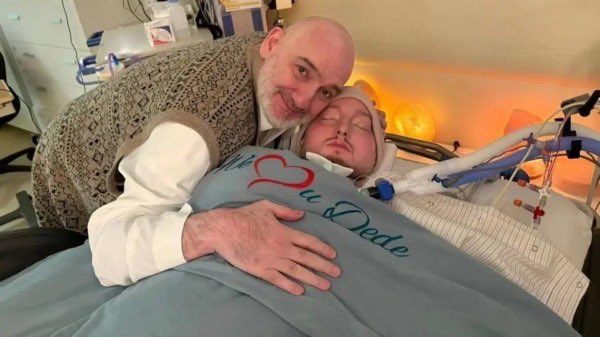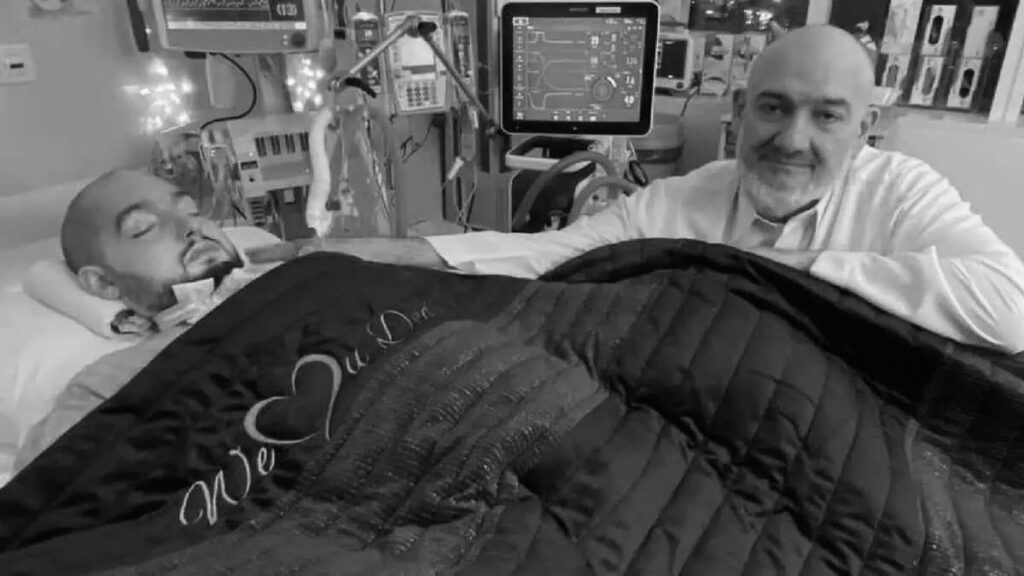Who Was Prince Al-Waleed bin Khalid?
Prince Al-Waleed bin Khalid bin Talal Al Saud was a member of the prominent Saudi royal family. Born in 1990, he was the son of Prince Khalid bin Talal, who is himself the son of Prince Talal bin Abdulaziz Al Saud—a powerful figure in the royal lineage and half-brother of the late King Abdullah. Prince Al-Waleed bin Khalid was also the nephew of Saudi billionaire investor Prince Al-Waleed bin Talal.

As a young royal, Prince Al-Waleed bin Khalid had access to elite education and was expected to serve in public or royal capacities. However, a tragic accident in his teenage years permanently altered the course of his life and would eventually turn him into a symbol of hope, faith, and medical perseverance.
Timeline of Key Events in the Life of Prince Al-Waleed bin Khalid
- 1990 – Born in Riyadh, Saudi Arabia, into the royal House of Saud. Son of Prince Khalid bin Talal and nephew of billionaire Prince Al-Waleed bin Talal.
- 2005 (Age 15) – Involved in a serious car accident in London while studying abroad; suffered severe brain injuries and fell into a coma.
- 2005–2025 – Remained in a persistent vegetative state, receiving long-term care at King Abdulaziz Medical City in Riyadh.
- 2015–2023 – Periodic videos showing minor movements (e.g., finger twitching) went viral, renewing public interest and social media engagement using the hashtag #SleepingPrince.
- Throughout the 2010s–2020s – Family, led by Prince Khalid bin Talal, declined to end life support, citing religious and moral beliefs.
- July 19, 2025 – Official announcement of Prince Al-Waleed bin Khalid’s death after nearly two decades in a coma.
- July 20, 2025 – Funeral prayer held at Imam Turki bin Abdullah Mosque in Riyadh; attended by royals, dignitaries, and citizens.
- Posthumous – Widely remembered as the “Sleeping Prince”; his life and story became a symbol of hope, faith, and ethical reflection worldwide.
The 2005 Car Accident
In 2005, at just 15 years old, Prince Al-Waleed bin Khalid was involved in a devastating car accident while studying in the United Kingdom. According to available reports, the crash occurred in or near London. It resulted in a traumatic brain injury, including internal bleeding and severe hemorrhaging.
He was promptly hospitalized and underwent emergency surgery. Despite the best efforts of medical professionals, he slipped into a coma—a state of prolonged unconsciousness from which he would never fully awaken. The prince was eventually transferred back to Saudi Arabia for long-term care, where his journey as the “Sleeping Prince” began.
‘Sleeping Prince’ of Saudi Arabia dead at 36 after 20-year coma https://t.co/bNcZV8DIfc pic.twitter.com/AVdowuOoiF
— New York Post (@nypost) July 20, 2025
Medical Condition and Media Attention
Doctors diagnosed Prince Al-Waleed bin Khalid with a persistent vegetative state, a type of coma where the patient is awake but not aware of their surroundings. He remained in this state for nearly two decades, receiving continuous life support and medical attention at a specialized facility—King Abdulaziz Medical City in Riyadh.
Over the years, occasional footage released by his family appeared to show small physical movements, such as a raised finger or blinking. These clips often sparked widespread interest on social media and global news platforms. While such movements were medically ambiguous, they were interpreted by his family and many followers as signs of consciousness and hope.
Despite his condition, Prince Al-Waleed bin Khalid’s story inspired debates around long-term coma care and drew millions of sympathetic supporters online.
The Family’s Decision to Continue Life Support
Prince Khalid bin Talal, the prince’s father, remained steadfast in his belief that his son could eventually recover. This decision reflected both religious faith and cultural context. In Saudi society—and in many parts of the Islamic world—there is a deeply rooted belief in the sanctity of life and hope for divine healing, even in cases where medical prognosis is bleak.
For nearly 20 years, the family chose not to withdraw life support. Prince Khalid once stated in interviews that as long as his son’s heart was beating, they would not give up on him. This stance invited both admiration and curiosity, especially in contrast to medical and ethical standards in Western countries, where families often face decisions about terminating life support in similar cases.
Global Symbolism and the Rise of “The Sleeping Prince”
Over time, Prince Al-Waleed bin Khalid became known globally as the “Sleeping Prince.” His story became emblematic of love, faith, and human endurance. Social media platforms, particularly Twitter and Instagram, helped amplify his story beyond the Arab world.
The hashtag #SleepingPrince trended multiple times over the years, often following the release of updates or video clips from his hospital room. Supporters across the globe prayed for his recovery, and his situation became the subject of many heartfelt online tributes and documentaries.
Prince Al-Waleed bin Khalid’s condition even sparked philosophical discussions on consciousness, the soul, and the boundaries between life and death.

Death Announcement and Funeral
On July 19, 2025, Prince Khalid bin Talal officially announced the death of his son, Prince Al-Waleed bin Khalid. The prince was 36 years old at the time of his passing. The news was shared via official channels and quickly made headlines across the Arab world and international media.
The funeral prayer was held the next day, July 20, at the Imam Turki bin Abdullah Mosque in Riyadh, a significant religious site in the kingdom. The funeral was attended by members of the royal family, dignitaries, and a grieving public.
Condolences poured in from around the world, with many social media users sharing messages of sympathy using the familiar hashtag, #SleepingPrince.
Ethical and Medical Reflections
Prince Al-Waleed bin Khalid’s story is both a deeply personal family saga and a case study in modern medical ethics. While the decision to continue life support for nearly 20 years may seem extreme by Western medical standards, it highlights the complexities involved in balancing faith, culture, medicine, and family will.
Persistent vegetative states remain one of the most ethically challenging conditions in medicine. While medical consensus often suggests that recovery is highly unlikely after several months or years, exceptions exist, and families frequently find it difficult to let go.
In Prince Al-Waleed bin Khalid’s case, the choice to continue care for two decades exemplifies the emotional weight such decisions carry—especially for families with resources and strong spiritual convictions.
His Legacy: A Prince Remembered
Prince Al-Waleed bin Khalid will be remembered not for royal duties or public service, but for the extraordinary circumstances of his life. He became a silent symbol of resilience, parental devotion, and unwavering hope.
For many Saudis and supporters around the world, the image of a young prince lying quietly in a hospital bed became a metaphor for life’s unpredictability—and the strength of the human spirit. In death, as in his two-decade sleep, Prince Al-Waleed bin Khalid united people from diverse cultures in compassion and prayer.
His story may also serve as a conversation starter for improving global understanding of long-term coma care, the emotional toll on families, and the importance of empathy in medical decision-making.
For more news and update stay tuned with usamainland.com



